In an overcrowded coffee market, it can be difficult making a profit.
But when you are selling it for an important cause, every little bit counts.
For Tasmanian couple Faina Iligoga and Aubert Ruzigantekwe, the money they make from selling coffee does not go to them - it goes back to the place they used to call home, Rwanda.
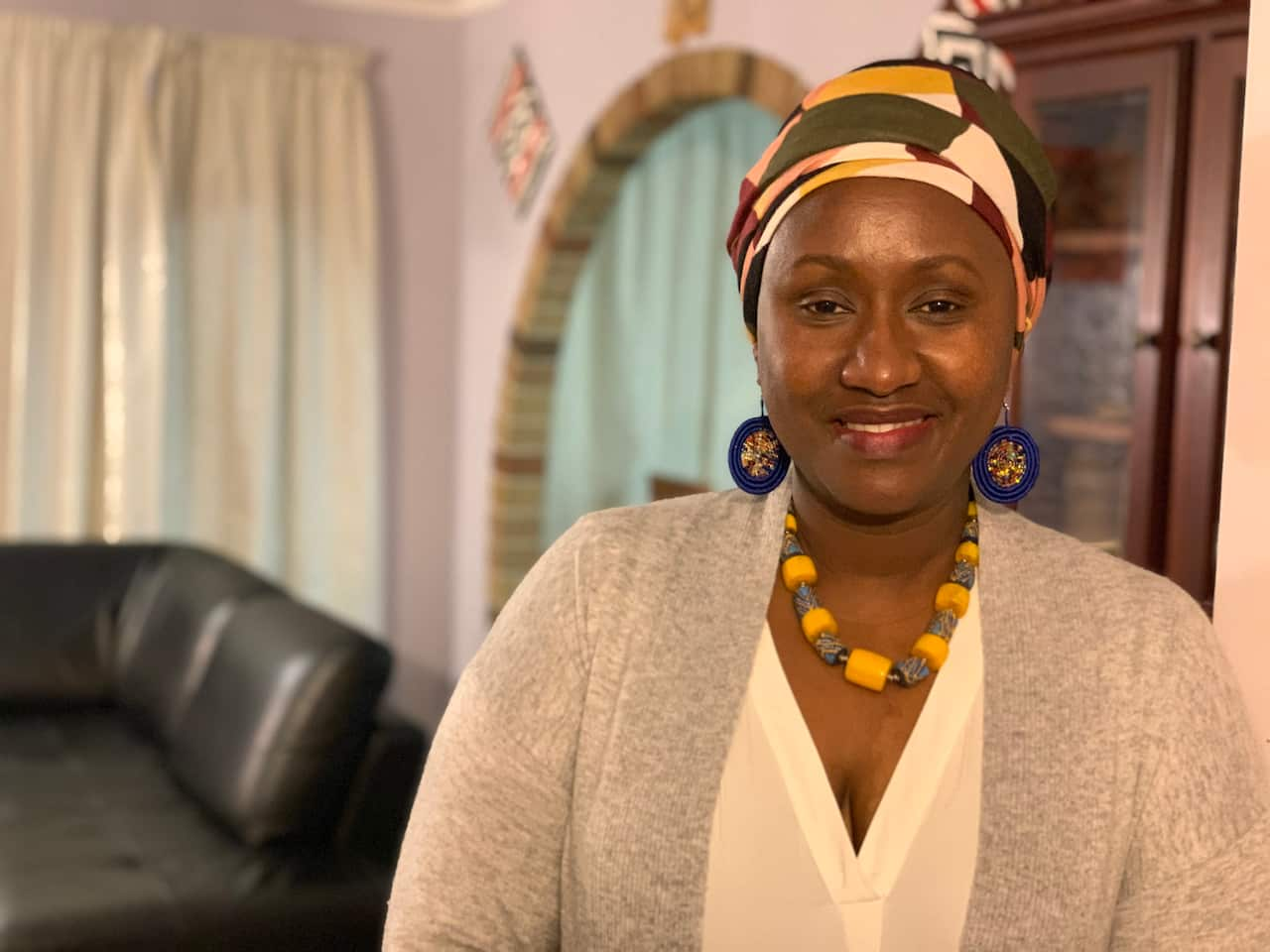
Faina Iligoga lost several members of her family in the genocide. Source: SBS News
As survivors of the country’s genocide, the proceeds from all the sales of the Rwandan Coffee Club are put back into supporting other survivors.
“It makes me really happy, even though I feel like it's not enough. But I feel really great," Faina told SBS News.
“I feel good that I've done even that little that I can afford to do. That's why we give our time."
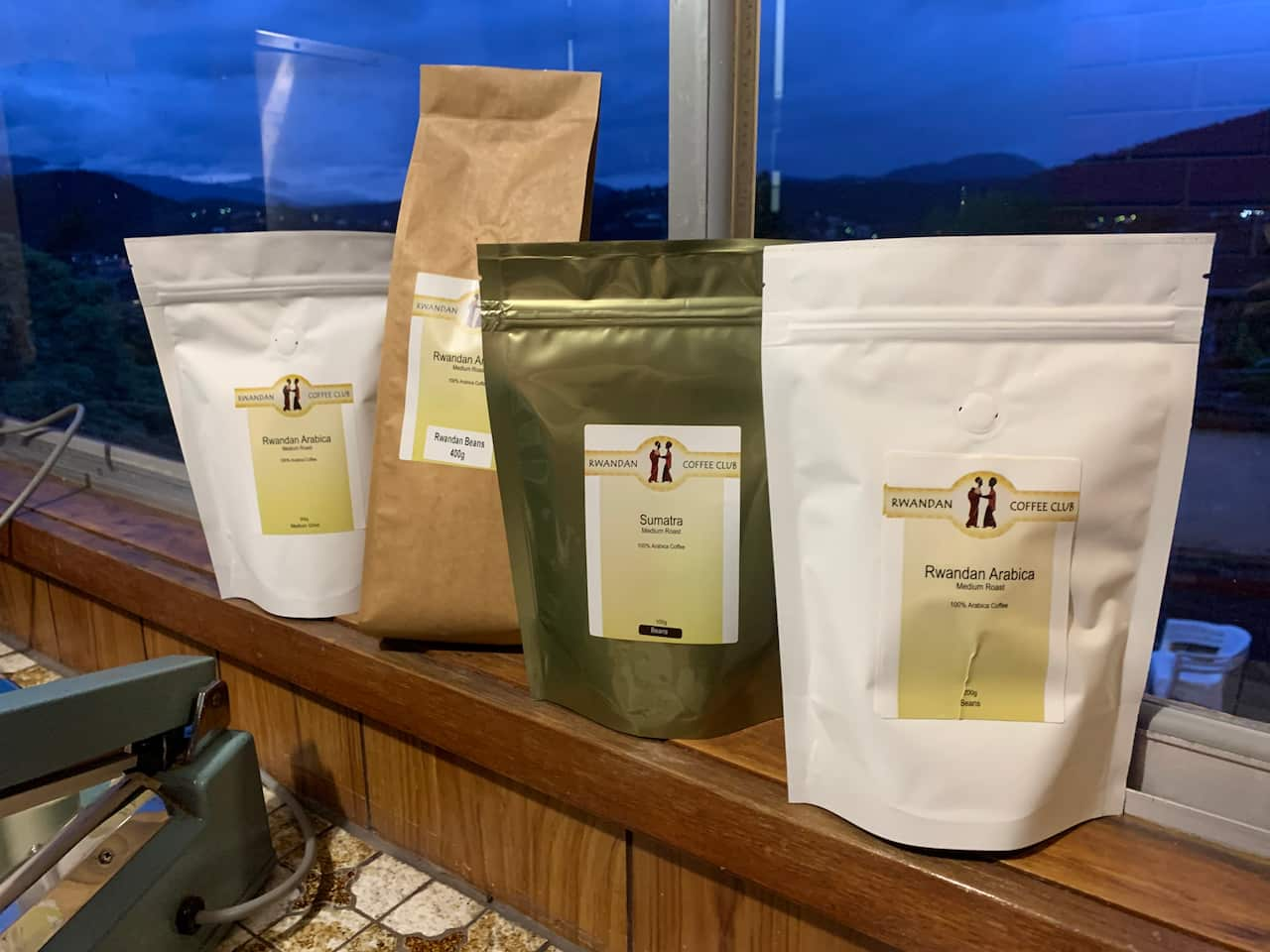
All the proceeds from the coffee sales go towards supporting other survivors. Source: SBS News
The mass slaughter of people for 100 days in 1994 resulted in the death of between 800,000 and one million people, most of them from the Tutsi minority, killed by members of the Hutu ethnic group.
Faina lost at least 71 members of her family, including her parents and four brothers, as neighbours and friends turned on each other.
“There were so many kids and young people who didn't have anywhere to go who had no one else left,” she said.
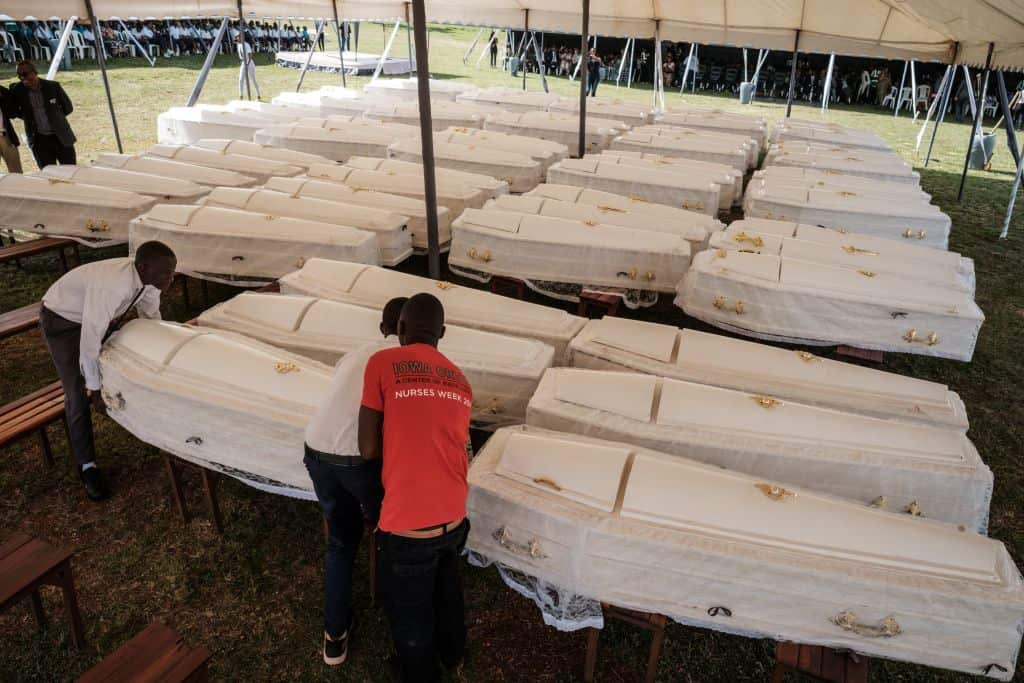
Coffins containing newly discovered remains of 84,437 victims of the 1994 genocide during a funeral in Kigali on 4 May 2019, 25 years after the slaughter. Source: ASUYOSHI CHIBA/AFP/Getty Images
Faina arrived in Australia in 2002 with two of her children and her three sisters, who she adopted.
Two years later, Aubert arrived and they decided to do something practical to help those they could not bring to Australia, starting the coffee club in 2006.
They source the beans from Melbourne and then package them and ground coffee from home to sell online.
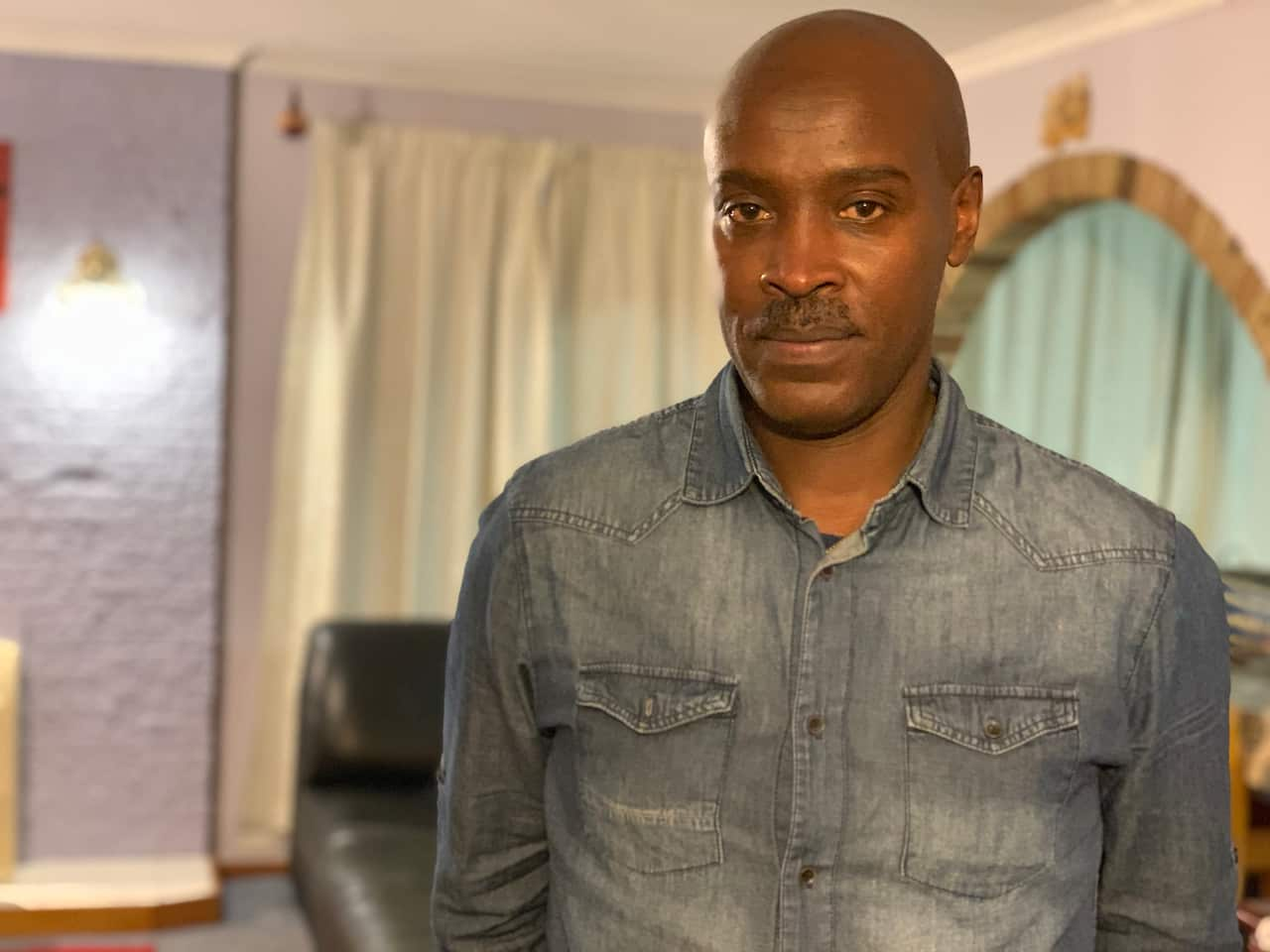
Aubert Ruzigantekwe says it's important to help others if you can. Source: SBS News
“Every survivor has been impacted, lost family members, brothers, sisters, cousins, and friends,” Aubert said.
“Many people have a lot of physical and mental health problems, we thought maybe we can get together and try to help.”
Since the project began they have bought cows, pigs and bulls for a number of communities.
“They need to get manure from the animals and they cannot afford to buy all these fertilisers to do that, so if they have a cow then they're going to be able to feed their families,” Aubert said.
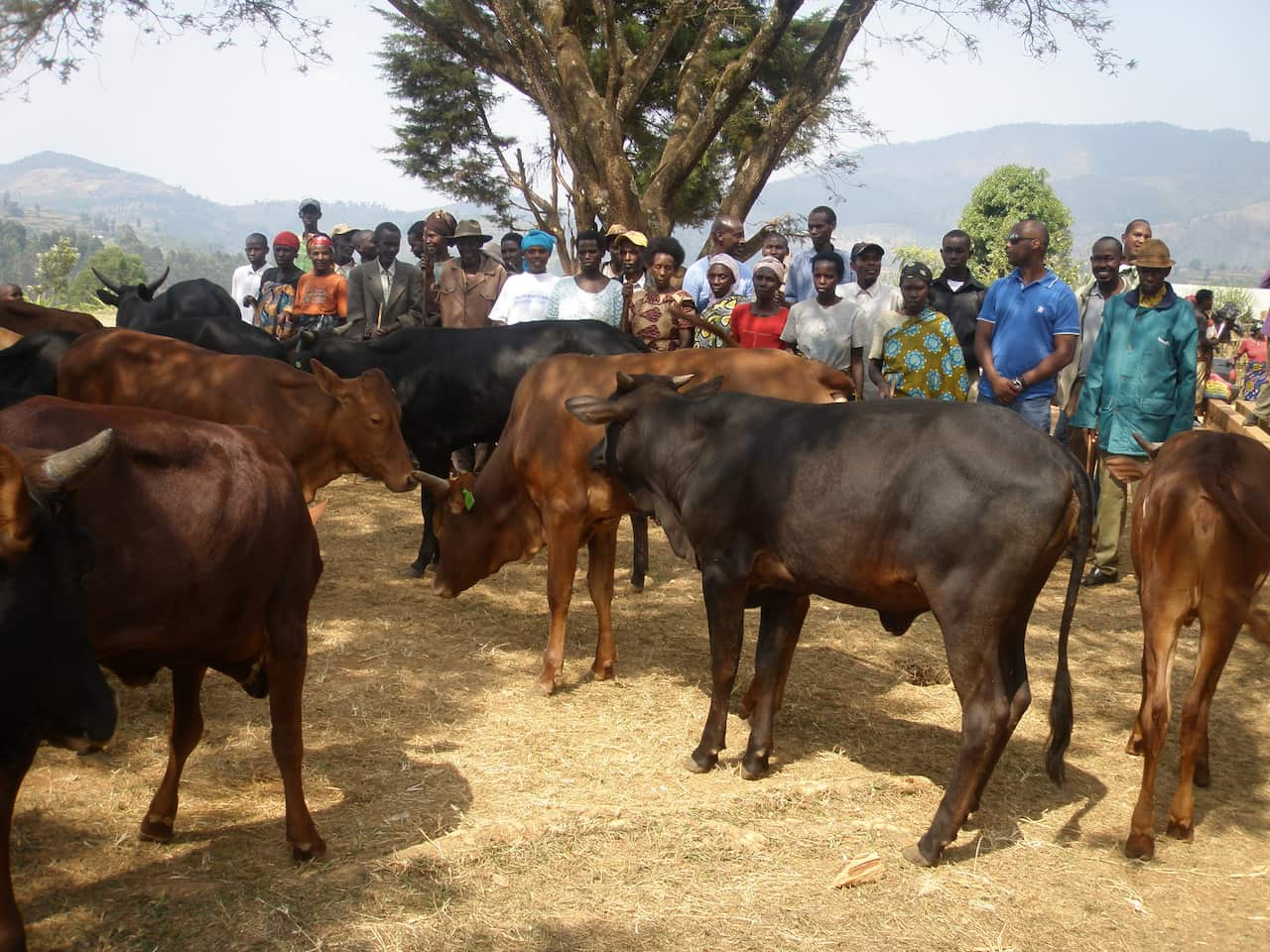
Cows purchased from proceeds of the coffee sales. Source: Supplied
Aubert travelled back to Rwanda in 2017 to see firsthand how the communities have benefited.
“Young people left with no one” after the genocide, he said.
Trauma expert and counsellor Marc Chaussivert said for many survivors of such horrific events, giving back can be one way to deal with grief.
“It helps them move beyond their trauma in the sense that they’re no longer being defined by that, they’re no longer just victims of terrible things,” he said.
“They’re people that are giving back, that are doing something to help themselves and to help their community.”
The couple's next project is to provide education for children of survivors.
Paying for an education can be expensive and with many Rwandans still living in poverty, the couple hope to be able to pay for school fees.
Faina said they do not want to just give them handouts, they want to help people have a real chance at having a successful future.
"If we educate them, we give them that foundation to one day be able to look after their families, after they graduate and get a job to look after their families and their siblings," she said.
The couple said they feel fortunate to be in Australia and want to pass that message down to their children.
“It's important they understand that they know they live here and they are lucky to be in a safe place because that’s the main reason I think people migrate - because you want your children to be safe,” Aubert told SBS.
“We try hard for them to understand that what we have is more than enough and we can help others ... you’re lucky if you can help others.”
Share


